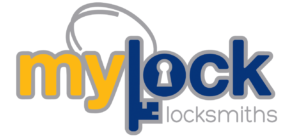It’s a bit weird, but while locksmithing as a profession isn’t really regulated, locks themselves are. Your locks protect your home, keeping people out and keeping yourself and your family safe inside.
But did you know that the locks you choose are also important for insurance purposes? Most insurance companies in the UK will now require that any external door to your home must have a certified lock for your insurance to be valid. Specifically, a lock that has been certified by the British Standards Institution. But what does that mean?
BS3621 Standards
The British Standards Institution was founded in 1901, and it’s the standards and certification body of the UK that determines the standard qualifications of a wide variety of products that affect your daily life. This includes door locks, food safety, health products, and much more. The standards they use for locks have been in place for over 100 years now, and you can spot locks that meet this standard by looking for the kitemark somewhere on the product.
The BSI has a few different standards for door locks depending on where on your property they are fitted. This includes BS3621, BS8621 and BS10621. Today we’re just looking at the BS3621 standard that insurance companies require.
What Makes A BS3621 Standard Lock?
Like all standards, there are a number of criteria a lock needs to meet before it can be awarded the BS3621 standard. A BS3621 standard lock must meet the following:
- A metal plate covering
- Screws must not be visible when the door is closed
- When locked, the bolt must protrude from the faceplate at least 20 mm into the door frame.
- If it is a mortice lock, the lock must have at least 5-levers or pin tumblers
Simple really!
To check if your lock meets these standards, look for the BSI kitemark, or an engraving for the standard number on the faceplate. If you don’t see it, don’t panic! It could mean the certification mark is within the lock itself, in which case you’d need to remove it to find out if it meets the standards.
BS3621 Locks And Insurance
What’s that got to do with insurance? Well, properties in London often require a BS3621 standard lock to be properly insured, and that approach is spreading through the UK as a whole. This is because these locks are considered more secure and harder to break into, which makes your insurance company happy. If you lie about having a certified lock on your door and have to make a claim later, you could be invalidating your policy and lose out on any rebate.
While this is a common scenario with most home insurance providers, it is ultimately up to whom you have insurance with. Many cheap insurance providers don’t ask this question, even if it’s a part of their coverage. Some insurers don’t require that you have locks that meet this standard. Other insurance providers even provide a discount if BS3621 locks are installed. When looking at home insurance providers, make sure to really do your research and see if the locks on your home need to meet any standards.
The good news is that BS3621 locks come in all different shapes and sizes, so you can find one that provides all the protection you need and still fits in with your décor. At My Locks we don’t just unlock doors, we help you understand your security needs and provide you with security solutions that keep you safe and save you money on things like insurance. Want to know more? Chat with the team at My Locks today.

